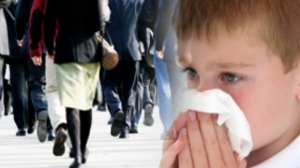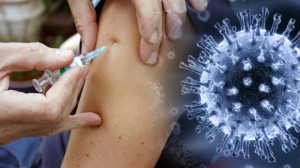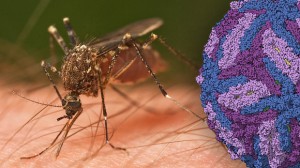NEW YORK (Reuters Health) – A single pediatric dose of adjuvanted vaccine against pandemic influenza A/H1N1 (pH1N1) is better than 80% effective at 10 days after administration for preventing hospitalization in children, a Canadian team reports in the November issue of Pediatrics.
“In the context of vaccination given during the course of an epidemic, rapid onset of protection with a single dose of vaccine is desirable,” the authors point out.
They explain that, unlike in the United States, a monovalent AS03-adjuvanted pH1N1 vaccine was the primary formulation used in Canada during the 2009-2010 flu season when the second wave of the H1N1 pandemic began. On the basis of prior immunogenicity findings and adverse-effect rates, a single injection of half the adult dose was recommended for children 6 months to 9 years old in Quebec.
To assess the effectiveness of this strategy, Dr. Rodica Gilca, with the Institut National de Sante Publique du Quebec, and colleagues conducted a case-control study comparing 221children hospitalized for pH1N1 infection between November 12 and December 19, 2009, and 663 matched controls who were not hospitalized.
Vaccination 10 days or more before the hospitalization date was more frequent in the controls (21.6%) than the cases (8.1%). For an interval of 14 days or more, the respective rates were 9.5% and 4.1%.
“Unadjusted overall pH1N1 vaccine effectiveness in preventing hospitalization when given at least 14 days before illness onset was 77%,” the investigators calculate. After adjustment, effectiveness increased to 85%.
Vaccine effectiveness was only slightly less at 81% at 10 days after administration, Dr. Gilca and colleagues report. They point out that these effectiveness figures are in line with efficacy usually seen with two doses of seasonal influenza vaccine, as is generally recommend for children who have not been immunized before.
“However,” they comment, “the rapid unfolding of the fall pH1N1 wave would not have permitted a second dose to exert its effect in time, suggesting that this recommendation may not always be practical and the incremental benefit of a second dose may be doubtful when immunization coincides with an epidemic.”
Reference:
Effectiveness of Pandemic H1N1 Vaccine Against Influenza-Related Hospitalization in Children
Pediatrics 2011; 128.




